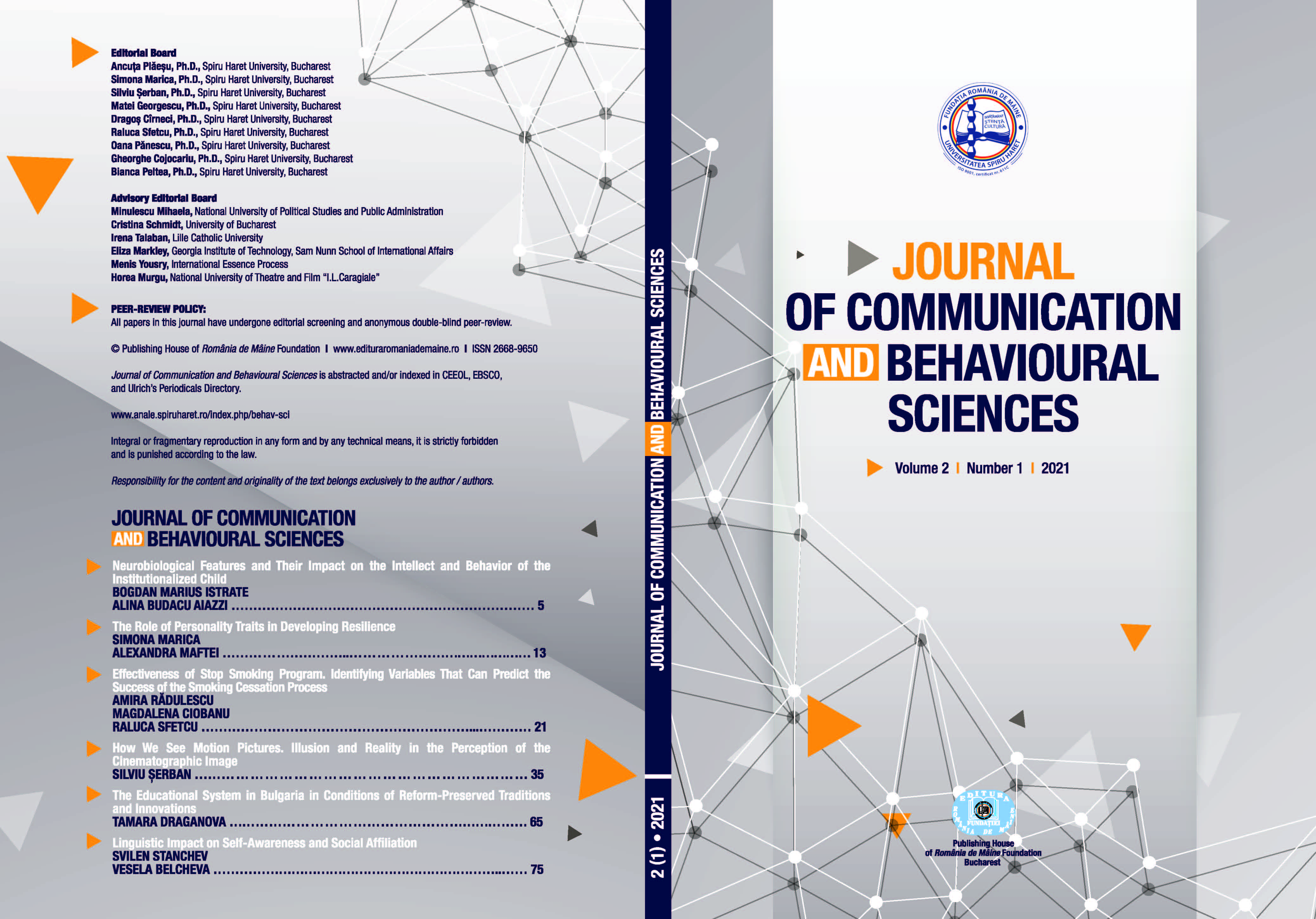EFFECTIVENESS OF STOP SMOKING PROGRAM.
IDENTIFYING VARIABLES THAT CAN PREDICT THE SUCCESS OF THE SMOKING CESSATION PROCESS
EFFECTIVENESS OF STOP SMOKING PROGRAM.
IDENTIFYING VARIABLES THAT CAN PREDICT THE SUCCESS OF THE SMOKING CESSATION PROCESS
Author(s): Amira Rădulescu, Magdalena Ciobanu, Raluca SfetcuSubject(s): Social psychology and group interaction, Substance abuse and addiction, Health and medicine and law
Published by: Editura Fundaţiei România de Mâine
Keywords: behavioural therapy; evidence-based cessation treatment; nicotine dependence; quitting tobacco;
Summary/Abstract: According to the WHO, tobacco kills about half of its consumers, almost 7 million people a year, of whom nearly 1 million are passive smokers. Europe has a worryingly high level (28%) regarding the prevalence of smoking among people over the age of 15 and the adolescent segment. These issues make tobacco use an epidemic. The “Stop Smoking” National Program is coordinated by the Institute of Pulmonology “Marius Nasta” and is funded by the Romanian Ministry of Health, being implemented in 6 centres across Romania. The program aims to give smokers access to a complete treatment program to help them quit smoking, according to the recommendations of the World Health Organization and similar programs at the international level. The “Stop Smoking” program results have so far been evaluated only in terms of success rate, namely the percentage of abstinent patients at the end of the program (about 60% of all enrolled) and six months after quitting (about 40%). This study aimed to evaluate the effectiveness of the National Program (“Stop Smoking”) as well as the impact of factors such as age, Fagerstrom score, number of cigarettes smoked daily, previous attempts to quit smoking, the number of months of abstinence in previous attempts and individual psychological counselling on the program performance. Results show that, in Bucharest centre, 74.8% of the total number of participants in the program was abstinent at the end of the program and 52.3% were abstinent six months after the conclusion of the program.
Journal: Journal of Communication and Behavioural Sciences
- Issue Year: 2/2021
- Issue No: 1
- Page Range: 21-34
- Page Count: 14
- Language: English
- Content File-PDF

